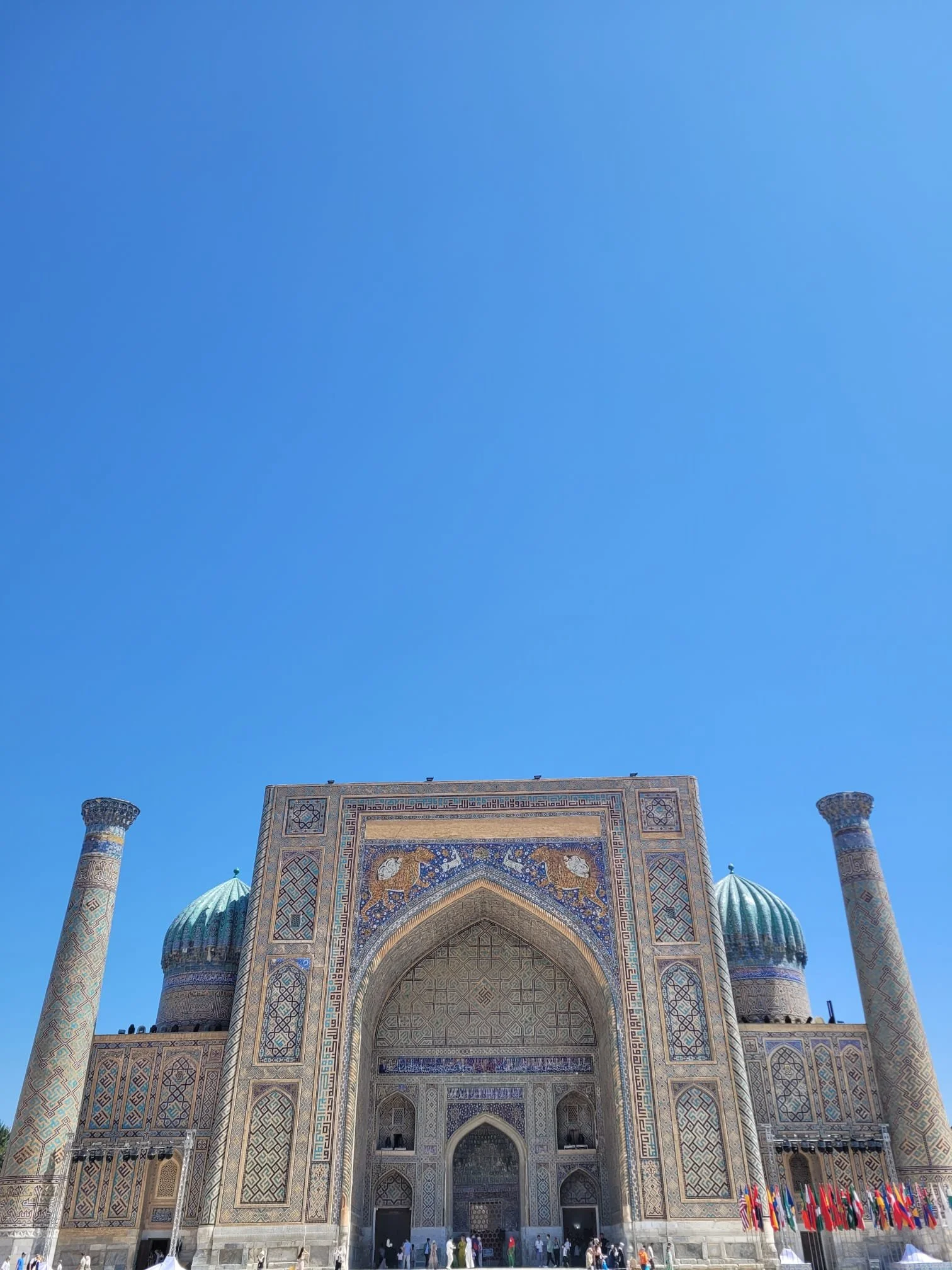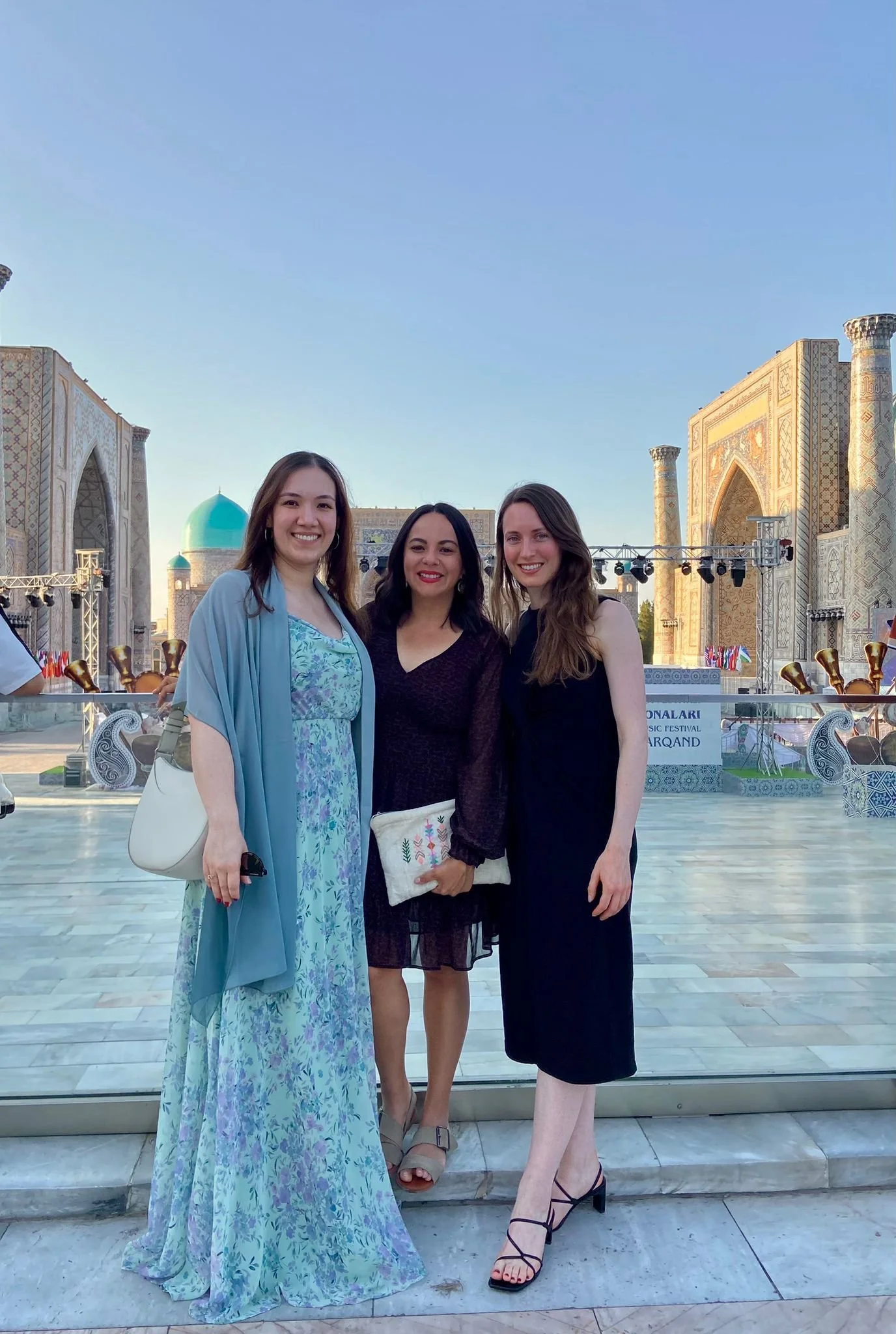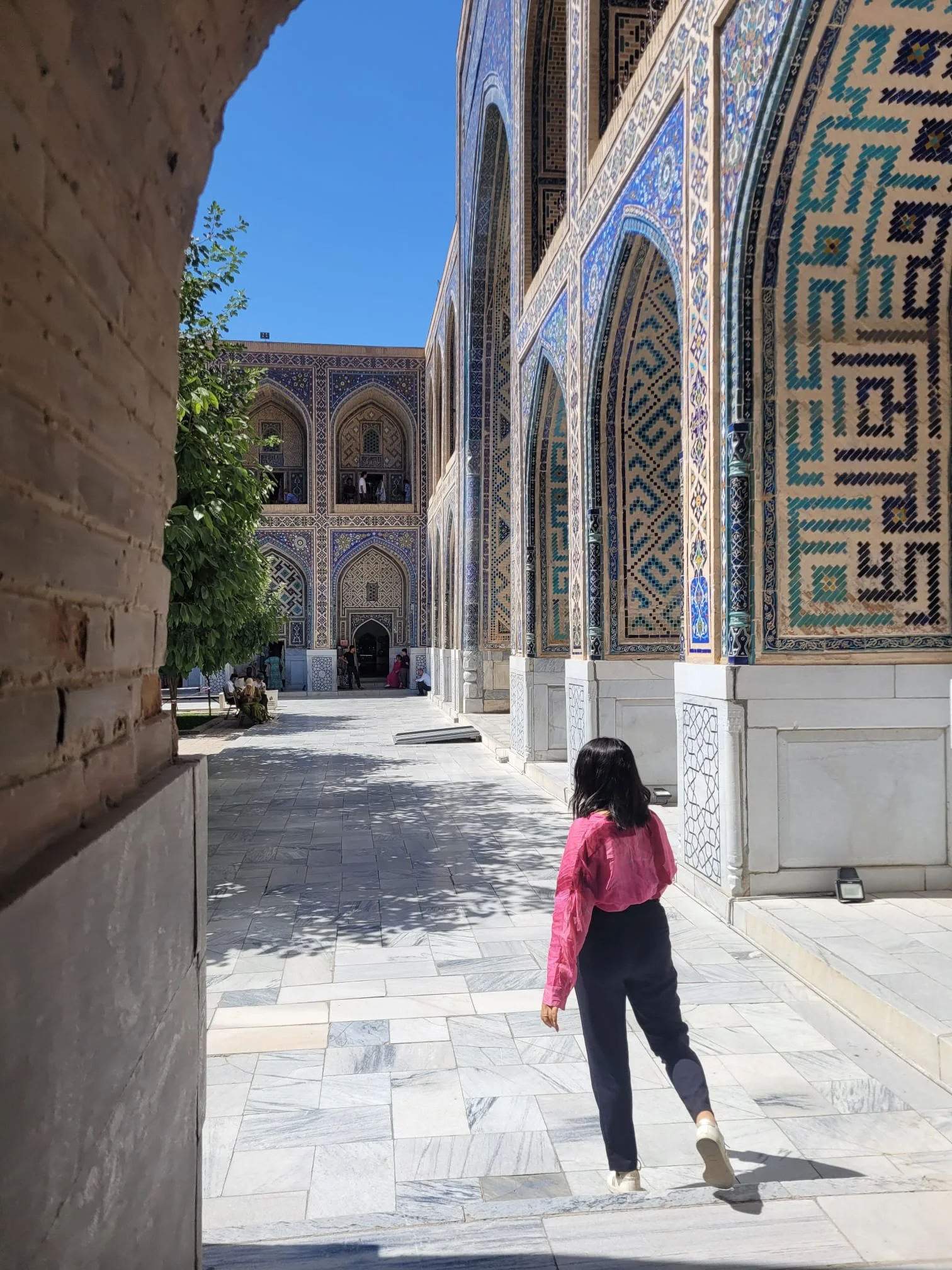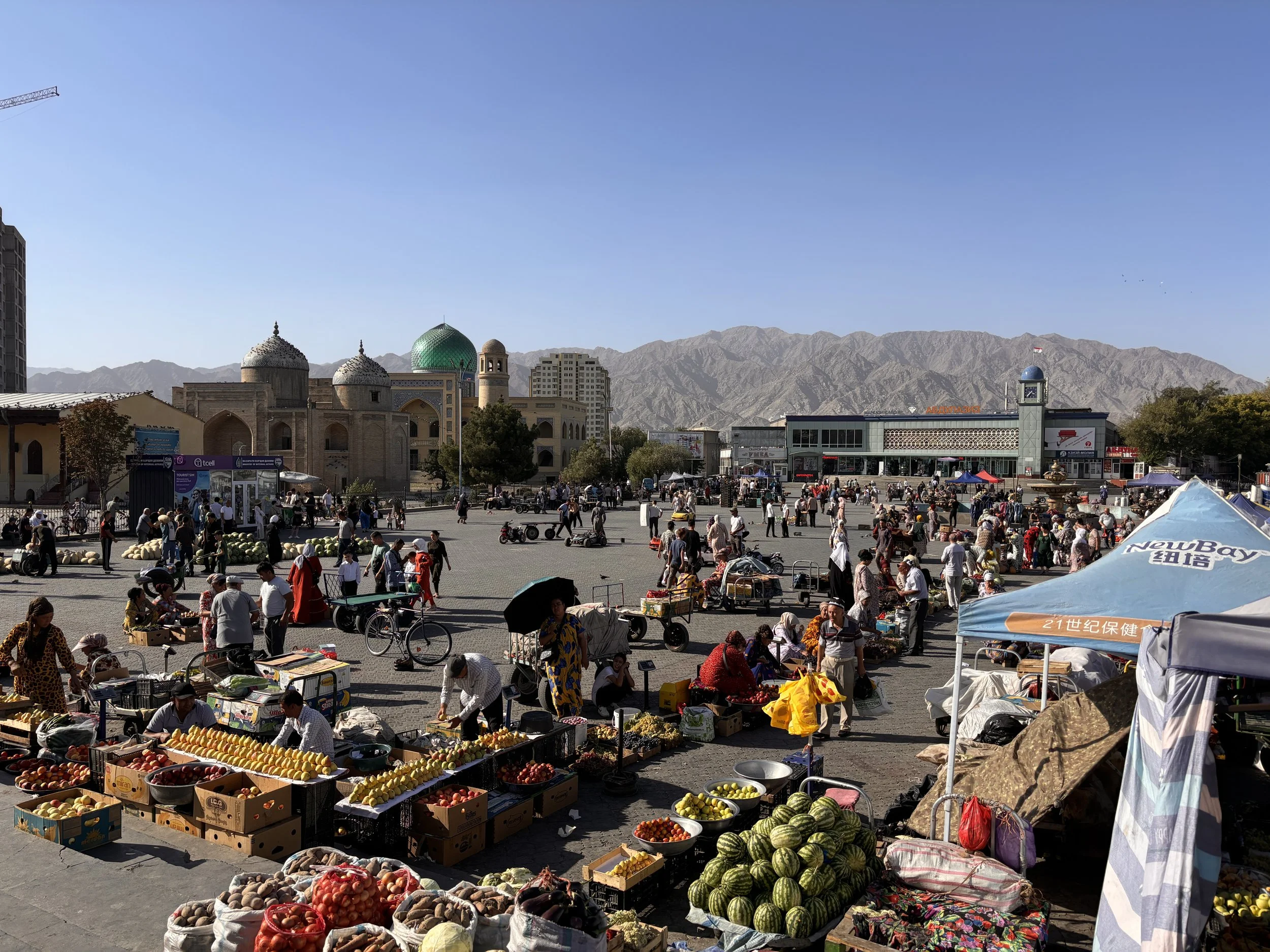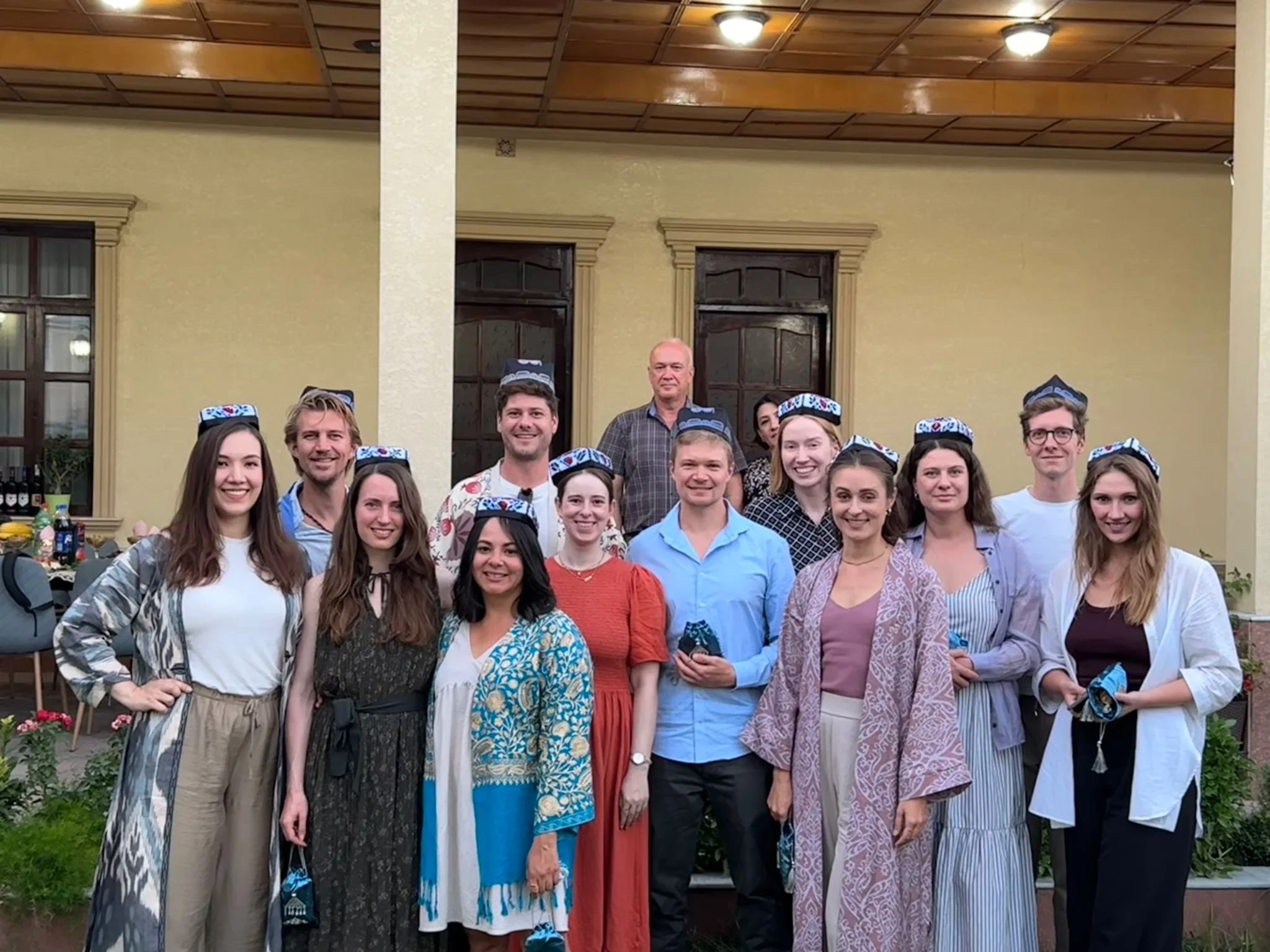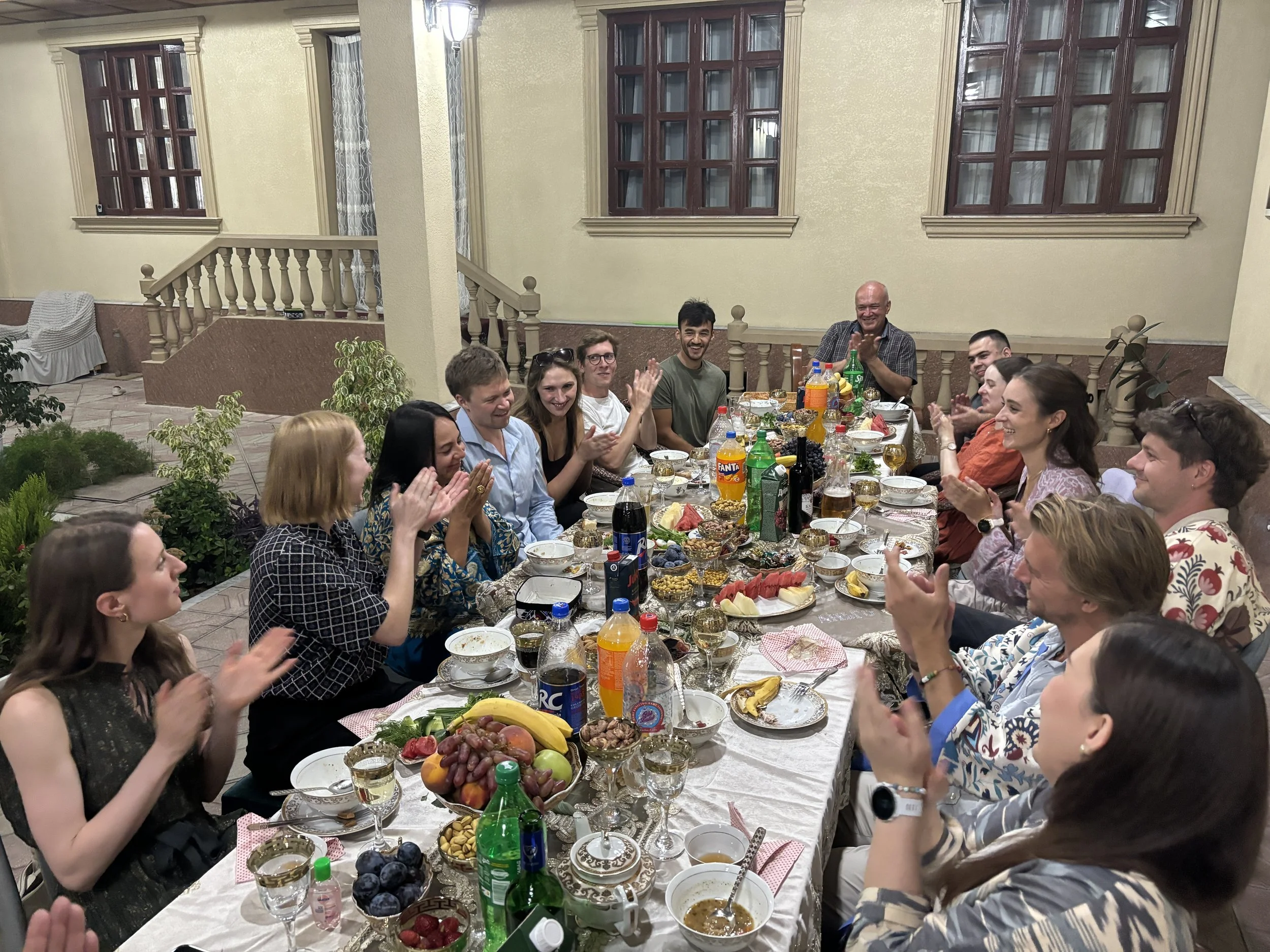Post cards from the “other” side of the world.
A few years ago, I lived with two incredible women who became like sisters to me. We created a post-quarantine plan that included visiting each other’s home countries. It was one of those things people tend to forget, yet we have been ticking it off non-stop in the last years. It’s not every day that three women from Honduras, Germany, and Tajikistan bond so closely over dancing, food and love.
Before meeting Julia and Shakhlo, I didn’t realize how swiftly cultures could intersect. Some days I´d feel completely Latin, while other days I´d find myself embracing both German and Tajik traits. Let me explain. Julia’s lessons on German trash separation became part of my strict daily routine. Our playlists and love for salsa were almost identical, now enhanced by Fairuz and Sha’s weekly song re-play. In our small space, we embraced the diversity. I guess we were just embracing each other. Although, in the early years of our friendship, I struggled to pronounce and spell Shakhlo (my mom still calls her CHARLOT with a thick spanish accent), there was something fascinating on how we could be so similar and close yet profoundly different at the same time.
Tajikistan, once unknown to me, felt like the “other” side of the world. I imagine, just as the tropics were for them. This realization made me reflect on Edward Said’s ideas about orientalism—how we often distance ourselves from the unfamiliar, reducing it to something exotic. I eventually started calling her Sha to avoid mispronunciations and decided to join her 30th birthday celebration in her homeland.
We first landed in Uzbekistan, where I was reminded of Audre Lorde’s vivid descriptions of the region. Her words about a desert transformed into a land of abundant fruit rang true as I tasted the peaches and watermelons. Lorde also noted the unity between Russians and Asians, which I felt through their use of Russian to blend their cultures. The contrast between grand Persian-inspired mosques and stark Soviet buildings highlighted the region’s layered history. The experience was awe-inspiring and humbling, sparking a wanderlust I had never felt before.
Crossing the border into Sha’s hometown introduced us to a variety of delicious melons, confident vendors, and the majestic Tajik mountains. These mountains made me feel small, both physically and existentially, indifferent to my academic worries or dating troubles. They stood as a reminder of something profound that I couldn’t fully grasp. Turning a year older there made me sensitive. It reminded me of the little Honduran girl I was, one that could not even grasp such experiences. The gratitude was overwhelming, forcing me to share tears with Sha, as I often do. Unfortunately, this depth was momentarily disrupted when I lost my phone, pulling me back to practical concerns and the everyday anxieties I tend to carry.
Nonetheless, Tajikistan welcomed us with warmth and an abundance of food—an overload of carbs and a sudden wave of heat that made us acutely aware of our bodies. Traditions were alive and vibrant, textiles shouted of color, and dancing was a daily occurrence. I was corrected when I thought it was a beautiful personality trait Sha innhabited, but now more aware of the cultural significance it resembled. The sight of veiled women everywhere brought a sharp consciousness to my own uncovered state. Despite having many Muslim friends, I felt a sense of difference. My own double moral society didn’t impose a veil, but it did impose the predominant male gaze, making me self-conscious every time I wore a mini skirt. In that moment, I realized that although the forms of expectation differed, the underlying experience was not so different from how I was raised. The veil, I came to understand, was not just a religious symbol but also a way to navigate the city while avoiding the stares—a different manifestation of the same societal pressures I knew all too well.
I had been hesitant about the size of our travel group and hadn’t engaged much in the planning, but I was pleasantly surprised by the openness and camaraderie we shared. The energy unmatched. Ironically, the closest I’ve felt to Germans since moving to Germany was during my time in Central Asia, where we bonded over shared experiences—especially the stomach troubles that tested my supposedly resilient Honduran stomach.
Despite those challenges, I experienced some incredibly beautiful days. I celebrated my coming of age with salsa and bachata in Khujand. Enjoyed a birthday song composed by my best friend, and danced with two of my favorite people in the apartment Sha’s parents had arranged for us. I´ll always remember the pomegranate trees in her parents’ garden, which perfectly matched their warm hospitality. What they called "tea" turned out to be a lavish banquet straight out of Sha’s wedding videos. Matin, with his love for music and dance. Till´s enery and positivity, Jacob’s knack for solving problems with a side of affection and sitting next to Svenja for some banter, all came together to create a recipe for great memories.
Next time you meet someone from a country you know nothing about or can’t pronounce, just dive in, get closer, and connect. At the core, we all experience the same joys and challenges, seek love and connection, and share the same human desires to learn and unlearn. More importantly, we all get diarrhea in the same ways.
Mentions:
(Said, Edward W. Orientalism. Pantheon Books, 1978)
(Lorde, Audre. Sister Outsider: Essays and Speeches. Crossing Press, 1984)

